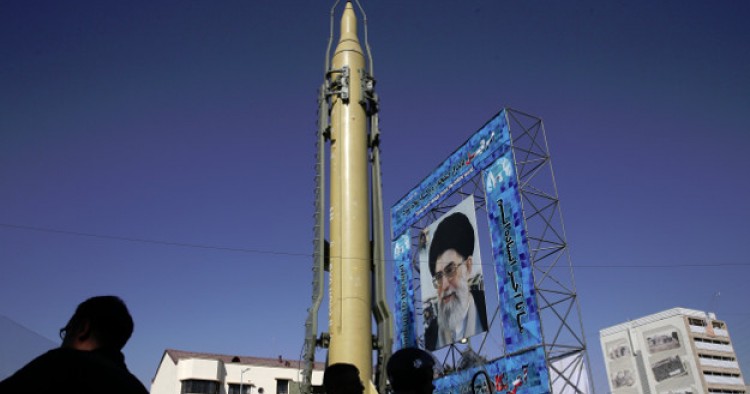The new Iranian defense minister said today that the Rouhani administration is determined to further enhance the country’s missile program, Tasnim News Agency reported. “We’ll increase and upgrade our defense power to an extent that no-one dares to show aggression to our country,” Brigadier General Amir Hatami said on a television program. He further pointed out that Iran has domestically developed the Bavar-373 air defense system, which he claimed is more advanced that the S-300 system Iran had purchased from Russia. He added that the work on the Bavar-373 system is 85 percent completed and the system will be stationed next to the Russian-made S-300 system soon. Hatami further noted that the S-300 system has been stationed in “strategic locations” across the country and its personnel has been thoroughly trained in how to use the defense system if needed.
In an interview with Tasnim News Agency yesterday, another senior Iranian official revealed that the Iranian armed forces have “fully integrated” the S-300 air defense missile system into the country’s air defense network. Lieutenant Commander of Khatam al-Anbia Air Defense Base General Abolfazl Sepehri Rad said the system has been stationed in temporary locations across the country and is ready for use.
Separately, Iran’s Air Defense on Monday unveiled four homegrown systems designed for civil and military use.
Comment: While Hatami did not provide details about the locations of the S-300 systems, Iranian officials have in the past mentioned that the main priority for the defense systems will be to protect Iran’s nuclear sites. Russia and Iran signed a contract on the delivery of S-300 systems a decade ago, but Moscow suspended the contract in 2010 citing international sanctions against Iran. Russian President Vladimir Putin removed the ban on the delivery of the system to Iran in April 2015 as Tehran was close to signing the landmark nuclear deal with the U.S. and world powers. According to Russian and Iranian sources, the delivery of the system was completed in late 2016. Both the U.S. and Israel unsuccessfully tried to dissuade Moscow from delivering the advanced air defense system to Iran. Israeli officials had expressed the fear that the advanced defense system would provide protection for Iran’s nuclear sites and undermined Israel’s deterrence power.
Iran’s refusal to halt its controversial ballistic missile program and work on advanced air defense systems are likely to further heighten tension between Washington and Tehran. The Trump administration has taken a tougher approach toward Iran’s missile activity and has imposed new sanctions targeting Iranian entities associated with the program. While the White House says Iran’s repeated tests of ballistic missiles are inconsistent with the 2015 nuclear agreement, Tehran has made it clear that it will defy U.S. pressure and continue to further enhance its missile program.
The Middle East Institute (MEI) is an independent, non-partisan, non-for-profit, educational organization. It does not engage in advocacy and its scholars’ opinions are their own. MEI welcomes financial donations, but retains sole editorial control over its work and its publications reflect only the authors’ views. For a listing of MEI donors, please click here.













